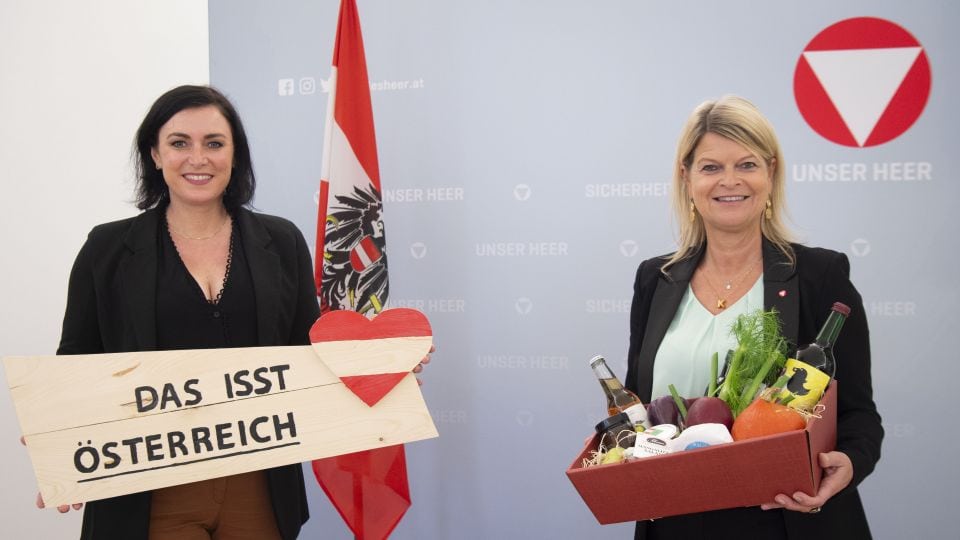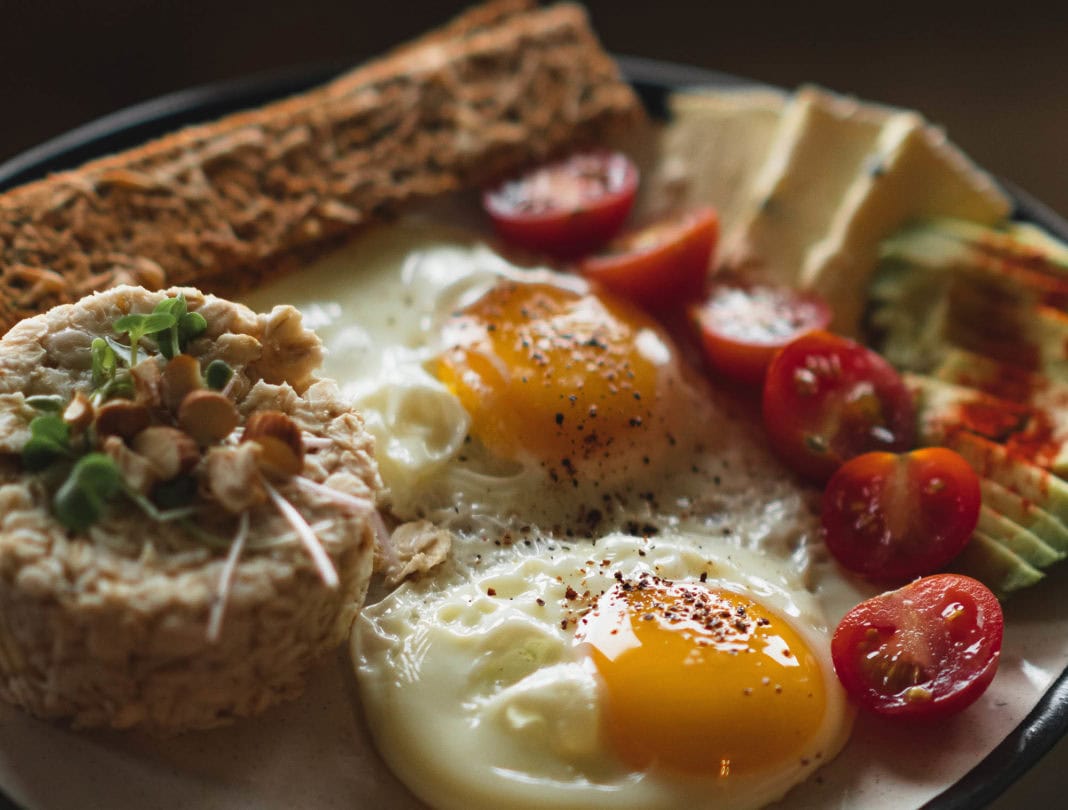“Das isst Österreich” – with this initiative, the federal government wants to encourage the population to buy more regional and seasonal food. In line with the motto “Our army eats regionally”, the Austrian Armed Forces are setting a positive example by focusing even more on regional food in future. The first step is the so-called “Klimateller”, which is now being introduced in barracks throughout Austria.
“The ‘Das isst Österreich’ project is increasingly focusing on regional and seasonal food, including in the kitchens of the Austrian Armed Forces. We are setting a good example with our climate plate and want to make our catering more climate-friendly and sustainable. Last year, we raised the daily food allowance for our soldiers’ meals in barracks and service units from four to five euros. This provides the armed forces with more money to further improve the quality and sustainability of food. The ‘Klimateller’ will be implemented throughout Austria in all catering facilities of the Armed Forces,” said Defense Minister Klaudia Tanner. “Regional food tastes better, comes from our farmers and protects the climate because transportation routes are shorter,” says Agriculture Minister Elisabeth Köstinger. “I am proud that the Austrian Armed Forces are setting a good example and implementing the ‘climate plate’. This is a strong commitment to domestic agriculture and the quality that our farmers produce 365 days a year.”

The Austrian Armed Forces have been working on projects for a more regional food supply for several years now. This includes the newly introduced project, the “Klimateller”. In the initial phase, this will be introduced every Tuesday in all army catering facilities. The project will be introduced in several phases. Initially, only lunch will be offered one day a week – Tuesdays – then breakfast/lunch/dinner one day a week and finally a “Klimateller” (in addition to the other menus) every day. In addition, internal training courses and workshops with external support are held on an ongoing basis to create climate-friendly recipes and test new raw materials. In addition to more sustainable and seasonal products, the use of meat and dairy products as well as highly processed and resource-intensive products will be adjusted and the proportion of vegetables and local grains will be increased. The aim is to make the food for the troops more nutritious and sustainable. There are almost 90 catering facilities in the armed forces. In 2019, the Allentsteig finalization kitchen provided around 53,000 soldiers with breakfast, lunch and dinner. The troop kitchen at the Hessen barracks in Wels catered for around 55,000 people in 2019. The troop kitchen at the Pontlatz barracks in Landeck catered for a further 33,000 people in 2019. In 2018, the cost of goods for the production of around 7.1 million daily portions (breakfast, lunch and dinner) amounted to around 17.3 million euros. With the “Klimateller” project, the Ministry of Defense is also setting an example of how conscious eating can help combat climate change.










